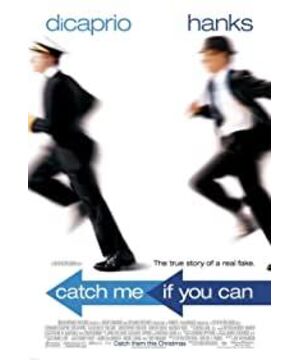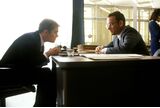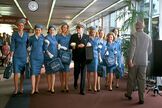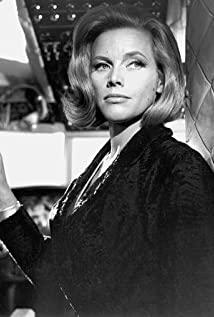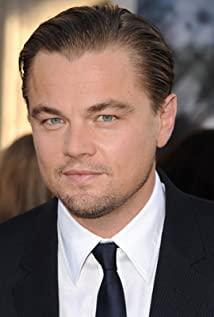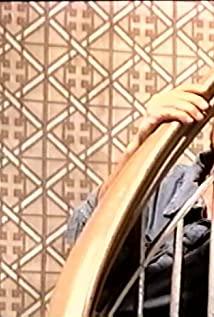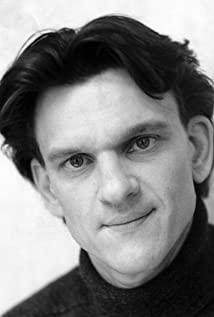Cat and mouse game:
Catch me if you can is a criminal drama filmed by Hollywood director Spielberg in 2002. The film soundtrack was created by John Williams. Following "Schindler's List" and "Saving Private Ryan", "Cat and Mouse Game" is another excellent film completed by Spielberg and John Williams.
In terms of composition style, the soundtrack of "Cat and Mouse Game" is different from the soundtrack created by John Williams for other movies. John Williams does not often create jazz music for movies. But it occupies a lot of weight in "Cat and Mouse Game" and his later film soundtrack works.
one. Movie theme music
The cat and mouse game theme movie is the theme music created for the opening short film of the movie. Cat and mouse game uses colorful animated short films as the opening, cleverly drawn out the story line in the form of clip art. In the opening of the cat and mouse game, the story is designed as two people chasing in airports, banks and hospitals. These locations are also It is the location around which the film's storyline unfolds. John·Williams composed 60s style jazz music for paint Europe. The movie "Cat and Mouse Game" has become the benchmark of this kind of movie title, and the clever combination of jazz and cut and paste animation makes the movie title more vivid. In the theme music of this movie, the soundtrack of the music is composed of the alto saxophone and bass bass with the characteristics of jazz music style as the main instruments, combined with a traditional orchestra. John Williams used woodwind, piano and percussion instruments in this theme soundtrack to create a jazz atmosphere, and used music to add tension and humor to the chasing background in the opening short film. Escapades I Closing In is also a musical theme motive that reappears throughout the film humorously chasing the story line. We can hear the theme-based soundtrack creation in every segment of the film where we discover new clues and start tracking.
The composer John Williams mentioned the creation of the opening soundtrack for the movie "Game of Cat and Mouse" in an interview with "Film Score". He said: "The whole piece is composed strictly in accordance with the characteristics of the music style of the 1960s. When director Spielberg told him that he wanted me to create the soundtrack for the movie "Cat and Mouse", the first thing he mentioned was It was his idea of the movie title. He hoped that the movie title would be presented in cartoon form, accompanied by a soundtrack with musical elements from the 1960s police and detective movies.
two. Theme music composed by Frank Abagnale.
The theme soundtrack is composed of orchestra, saxophone and piano. In this theme, John Williams uses fast tempo to construct bright colors for the film to highlight the young, witty and troublesome character of the movie protagonist Frank Abagnale. In this section, John Williams uses percussion and color instruments to emphasize, overlapping the accent of each beat. This method of using color instruments to emphasize the accent also confirms the soundtrack method of the classic Christmas music, so this piece of music gives people a kind of It feels similar to Christmas music. This passage is always closely connected with the protagonist Frank Abagenale in the film. In every wonderful chase segment, the melody of the floating theme can be heard. It can be said that the floating theme has repeatedly elicited climax in the whole film, which is the climax of the film. reflect.
3. Theme music composed for father.
This music theme was composed by the father of the protagonist Frank. The music shows the pain and anxiety caused by his wife's departure from him and the accompanying financial difficulties to the elder Frank, but at the same time he always strives to maintain his dignity mental state in front of his son. This slightly sad, melancholy section of Frank’s father’s mental state does not include reflection and redemption, but simply and powerfully expresses the subtle discord between Frank and his son that has brought a little bit to others. Sadness.
Four. other
In addition to the original soundtrack created by John Williams, the music used in the film also includes some classic jazz songs. For example, "Come Fly With Me" by Frank Sinatra and "The Christmas Song" and "The Look of Love" by Nat King Cole
It can be said that the film soundtrack created by John Williams for the film is another amazing work of him. We can feel the agile musical elements of jazz music and at the same time appreciate John·Williams' skillful skills in matching music and pictures. Generally speaking, the success of the movie "Cat and Mouse Game" is largely dependent on its wonderful soundtrack.
director
Spielberg's films contain several recurring themes. Most of his films show the contact between ordinary people and extraordinary people and the search for oneself in a special environment. This is in "Flywheel Bleeding", "Jaws", "Third Kind of Contact", "ET Alien", "Empire of the Sun", "Captain Hawke", "Jurassic Park", "Saving Private Ryan" ", "Cat and Mouse Game", "Happiness Terminal", "World War" and "Munich" are particularly obvious. In an interview with Spielberg by the American Film Institute (AFI) in August 2000, he talked about his interest in alien creatures and how this interest has affected his films. Out of this love for outer space, he has used the starry sky as the background of movies many times, such as in "Jaws". He described that he wanted to be an alien in his childhood, and this interest was inherited from his father. His father was a fan of science fiction, and he firmly believed that aliens came to Earth over a distance of millions of light years not to conquer, but because of curiosity and spreading their wisdom to humans. Another consistent theme in Spielberg's films is innocence, curiosity and belief, which are shown in films such as "Third Kind of Contact", "ET Aliens", "Captain Hawke" and "Artificial Intelligence". According to Warren Buckland, Spielberg's themes are generally expressed through low-position shooting, and this has become one of the directorial styles of Steiner. In movies with children, this technique will be used more frequently, but this technique also appears in "Munich", "Saving Private Ryan", "Happiness Terminal", "Minority Report" and "Broken Lock" "Rage Tide" and other movies. For example, the underwater camera in "Jaws" shoots the swimming action of a character from a low angle. Another theme related to children is the loss of innocence and maturity. "Empire of the Sun" tells the story of a spoiled and beloved British boy who suffered from the fire of World War II ignited by Japan and finally faded from his innocence and grew up to mature. Similarly, in "Cat and Mouse Game", Frank naively believes that if he can accumulate enough money, he can make the broken family complete again. Most of his films show natural optimism. Critics often criticize his works for expressing feelings too straightforwardly, while Spielberg believes that there are benefits to both straightforward and subtle expressions of feelings. His style comes from the influence of Frank Capra and John Ford. The exception in his work is "The Sugarland "Express" comes with a pessimistic ending-Jean lost her daughter's custody rights, and David's fate was never accepted by his human mother in the recent movie "Artificial Intelligence". And Frank in the crime film "Cat and Mouse Game"—the person who constantly rebelled against authority figures—in the end became part of the system represented by his rebellious people, which is a great irony of reality. In "World War" Spielberg showed the evil aliens for the first time. "Munich", his latest and most controversial and ambiguous film, shows a never ending violent cycle ending.
Lens
From "Jaws" to "Purple Sisters", to "Cat and Mouse Game", "Schindler's List" and "Indiana Jones", Spielberg brought us many iconic movie images. In this film review, I will try to analyze how some specific film techniques he used to achieve such amazing results.
1. Oblique tracking shooting
The tracking camera on the side follows the movement of the character. Although this is a recognized classic technology, Spielberg has turned it into his own technology. According to an article written by a Los Angeles filmmaker: "Spielberg added considerable visual effects to the lens, putting a variety of objects and extras on the camera and two main themes. In between, to enhance the richness of the picture and the visual perception of movement. In the cat-mouse game, there is a clip, when Frank walks into the airport disguised as a pilot, he uses oblique tracking shooting very reasonably. In Frank Taking a few flight attendants on a quick walk, the camera on their side moved with them, and the camera came alive. In addition to this movie, Spielberg also used a variation to make the actors We approached the camera after tracking and waited for the close-up to end. This technical lens was tested in the "Jaws" scene. The camera traced Brody and his wife to this fateful boat.
2. Long lens
Long-term shooting is a continuous shot played in real time. Unlike other directors, Spielberg's long shots tend to be less regular and more emotionally motivated. "Spielberg concealed these long shots in a variety of ways, allowing the audience to immerse themselves in the dramatic energy of the scene without feeling the movement of the camera." There is a textbook application in the cat and mouse game. When Frank was about to flee the United States again, FBI agents followed him behind him. The conversation between the two on the airport promenade is expressed through a long shot. The use of this long lens shows the real process and atmosphere, with a documentary effect. The editing lens is often cool and lacks realism. In "Saving Private Ryan" to "Jurassic Park" Spielberg has repeatedly used this long lens to create a sense of substitution.
3. Over the shoulder lens
In movies, shoulder shots are very common, but Spielberg dramatically creates claustrophobic fear in front of the camera, creating an effect that goes beyond the frame of classic movies. The eye-catching lens uses a wide-angle lens to make the character in the foreground look larger than the other character. This conveys a sense of dominance. The claustrophobic lens increases the weight of the shoulders in the frame and pushes the subject away from the center. . This lens technique was used when the FBI agent was talking to Frank to add a sense of tension.
Narrative:
Most of the existing narrative methods of "Classic Hollywood" are inpersonal narrative methods, that is, in the process of telling the movie, the audience cannot feel the existence of the narrator, and does not use an extra character identity and discourse to explain the plot. The concept of the narrator is a logical necessity for all stories. If it is stated in an impersonal narrative way, it shows that the reader has no circumstances to explain an event, that is, "who is telling" the matter. The advantage of this clever narrative technique is that it integrates a story into the events and characters of the story itself, and even the audience itself, making the story seem to be developing in a near-reasonable direction, rather than deliberately. Spielberg borrowed and developed this narrative technique. Audiences often find that in the process of watching his films, their eyes will be firmly attracted by the film, and they will even be brought into the film. This emotion has always been It lasted until the end of the film, and then the audience let out a sigh of relief. In his films, the audience does not feel the presence of the narrator, but is led by the omnipotent film lens and plot, step by step to understand everything the film has to tell, and experience an audio-visual enjoyment. For example, in the movie "Immunity" uses inpersonal narrative, it is not limited to a character, and there is no concept of time and space. It shows the audience the process of the development of the event in the eyes of the protagonist and the FBI. Through comparison, the audience can experience it. The pain and growth experienced by the protagonist. And the layout of the plot also uses a special technique. In different time periods, the protagonist’s experiences of different ages are interspersed, and even flashbacks are used to tell the protagonist’s spiritual sublimation process from the fraudster to the FBI agent, allowing the audience to feel the protagonist’s final heart after various events. The journey of liberation.
Many people think that the production of the movie is just an accidental experiment, and "Train Into the Station" only accidentally became the first movie. However, the development of film has its own special laws. Early filmmakers used the advantages of drama for reference during the development of film, so that film and drama interacted and improved together. Usually the foreshadowing of the contradiction is planted at the beginning, and the characters of the story lead to the cause of the story after the appearance of the story. As the story continues to develop, the audience will also see the deepening of the contradiction. When the contradiction deepens to the end, the timing is just right. The plot reached a climax, and finally ended after the outbreak, which impressed and memorized the audience. Directors often continue to deepen the contradiction. While setting seemingly ingenious suspense and misunderstandings, they add certain connotations of what they hope and think to, so that the audience can understand and understand the director's while being tightly grasped by the story. Ideas and ideas. Spielberg’s films follow this composition. In his films, the audience can see contradictions and confrontations everywhere. Just like the World War II scene reproduced in "Saving Private Ryan", the Allied and German forces fought tragically in the war until the search and rescue team fought against all kinds of obstacles all the way. Another example is a game of wits between a legendary scammer and FBI agents in "Get Out of the Law". In the end, the two gained mutual trust. The scammers converted to justice after falling into the French Open, and used their talents to help the FBI solve many fraud cases. In "Jaws", humans compete with great white sharks, and in "Lost World", sharks are replaced by dinosaurs. In the most well-known "Indiana Jones" series, Dr. Jones fights against all kinds of bad guys all the way, and eventually the evil is not suppressed. Spielberg's arrangement of contradictions kept the audience's attention tightly, which made the film a great success.
Acting:
Many people think that Leonardo’s Oscar-winning film should not be "Wild Hunter" but "Cat and Mouse Game", which also represents my own voice. "Cat and Mouse Game" is really the moment when Xiao Lizi's acting skills and appearance are at the peak. Unfortunately, at that time, Xiao Li's luck was still lacking, and people paid more attention to his appearance and acting skills. When "Cat and Mouse Game" was released in 2002, Xiao Lizi was 28 years old, which was very different in age from the adolescents in the film. Because Frank is a master acting in the film, he is good at pretending to be an adult and he is an adult with professional experience to fake the truth. This kind of setting is no problem for Xiao Li's age at that time. But it is a big challenge to play the role of a young man who looks like an adult. In the film, he switches from student to teacher in class for a second, which is amazing. After starting the road of disguise, he is as handy as an adult, and the audience seems to be about to forget the true age of this character. But the conversation with his opponent Joe on Christmas Eve, the kind of childlike loneliness that he wanted to get attention, and the manner in which he stood at the window and talked to his sister when he was finally arrested made the audience quickly come to their senses: it turns out that he was still a child. Ah? It's difficult to play a role with good acting skills, that kind of subtle expression when switching states, Xiao Lizi is very beautiful, just like his appearance at the time-the pinnacle. At the same time, combined with the experience of filming this movie, we can also feel Leonardo’s dedication to performance. Before the filming started, the director Spielberg invited Abanel to stay at Leonardo’s house for a few days. The purpose is to familiarize the protagonist with the role he plays. Unexpectedly, Leonardo was extremely serious about groping characters, "He followed me behind his ass, walking around the room, holding a notebook and tape recorder in his hand, constantly asking me questions and recording them." Abanel said to him. The reporter said, "I was deeply impressed by his professionalism." Leonardo's acting skills have always been recognized by the masses as the top Hollywood and in his most famous movie "Titanic". The acting skills are even more breathtaking. In fact, when filming this film, director Cameron was not very satisfied with Leonardo. He once issued an ultimatum to Leonardo: "I know that most of your previous roles were overly melancholic and a little neurotic, but absolutely not in this film." Leonardo finally listened to Cameron’s advice. Excellently shaped his first "normal person" role. Indeed, for an actor, nothing is more difficult than acting a fresh, simple and simple character. In this film, Leonardo's performance is very dedicated, full of curiosity and enthusiasm. Under a childish face, fascinating sex is vaguely visible Affection. Leonardo became the spokesperson of a new generation of idols. It can be seen that Leonardo has a strong ability to control the role. He can easily change himself to suit the requirements of the film, and this is also the realm that a good actor needs to achieve.
Values:
For the analysis of the values of this article, psychological analysis can be used. From the perspective of social psychology, why are so many people deceived? In that era of innocence, people did not yet have the concept of stereotypes, but Frank already knew how to use stereotypes to gain the trust of almost everyone. As soon as he entered high school, he used the majesty of the teacher to make his classmates think he was a teacher and angered the real teacher. He took a notebook and a camera, pretending to be a young man who published an article in the school magazine, and interviewed Pan Am executives in order to deceive information. He put on the clothes of a pilot and walked to the front desk of the airport. The waiter easily believed that he was the deputy captain and sent him a free flight. He forged his diploma and went to the hospital to apply for work. No one doubted that people always Judging a person's personality and identity in a person's appearance and conversation, and this is precisely the basic attribution error. Frank uses this to flexibly manage the impression, and the fish and the eye are mixed and mixed. Finally, in fact, Frank’s criminal motive was very simple, to reorganize the broken family and return to his previous happy life. It can be seen how important intimacy is. Harvard University has carried out the longest research project on adult development in history, and it is still continuing: from 1938 to the present 75 years, they tracked 724 men, from teenagers to old age, year after year inquiries And record their work, life and health status, etc., the final conclusion is that what really makes people happy is not money, fame or sense of accomplishment, but good social relationships. Loneliness is harmful to health. Those who are closer to family members and who love to socialize with friends and neighbors will be happier, healthier, and live longer than those who are not sociable and isolated. Life is like a play, and it all depends on acting. "A true master must be someone who knows how to use the laws of the bottom of the times to amplify the benefits of their own efforts."
Role:
Frank Abagno Jr.
Adapted from a real person, the thief named "Skywalker" by the FBI. He was originally a well-behaved boy, but his parents' divorce and broken family made him go astray. He is personable, clever tongue, intelligent, and good at forging checks and posing as people of various identities. In the course of the adventure, he never forgot his dream of rebuilding his family, eager to use his success to help his father regain respect and regain his mother's love.
Carl Henrati
Senior FBI agent, was ordered to hunt down Frank. Like Frank, he has a broken family and is alone. He has a daughter who has never met. He spends all his time catching criminals, so that every Christmas is spent in the office. In the process of battling wits and courage with little Frank, they developed a friendship and tacit understanding similar to that of father and son. He knows little Frank deeply and cherishes the other's talents. He also gave the young man the love and attention that he lacked, hoping to pull him back on the right path.
Frank Abagno the Elder
The father of Frank Abagno Jr. is a business elite and has received a Medal of Honor from the mayor and enjoys a good reputation. He often tells his son the story of two mice falling into the bucket of butter, preaching that as long as you work hard, you can achieve success. However, things are fickle. His shop was investigated and punished by the government for tax evasion. His reputation was discredited and his wife broke up after bankruptcy. He struggled to restore the man's self-esteem, but suffered misfortune.
Brenda Strong
A young and cute nurse who lacks self-confidence. He came from a good family. Because of his ignorance, he was tempted to become pregnant by his father's golfer and was kicked out of the house by his parents. While working in the hospital, she ran into Frank Jr. and fell in love with this young man who sympathized with her. However, their wedding was disrupted by uninvited FBI agents
View more about Catch Me If You Can reviews


